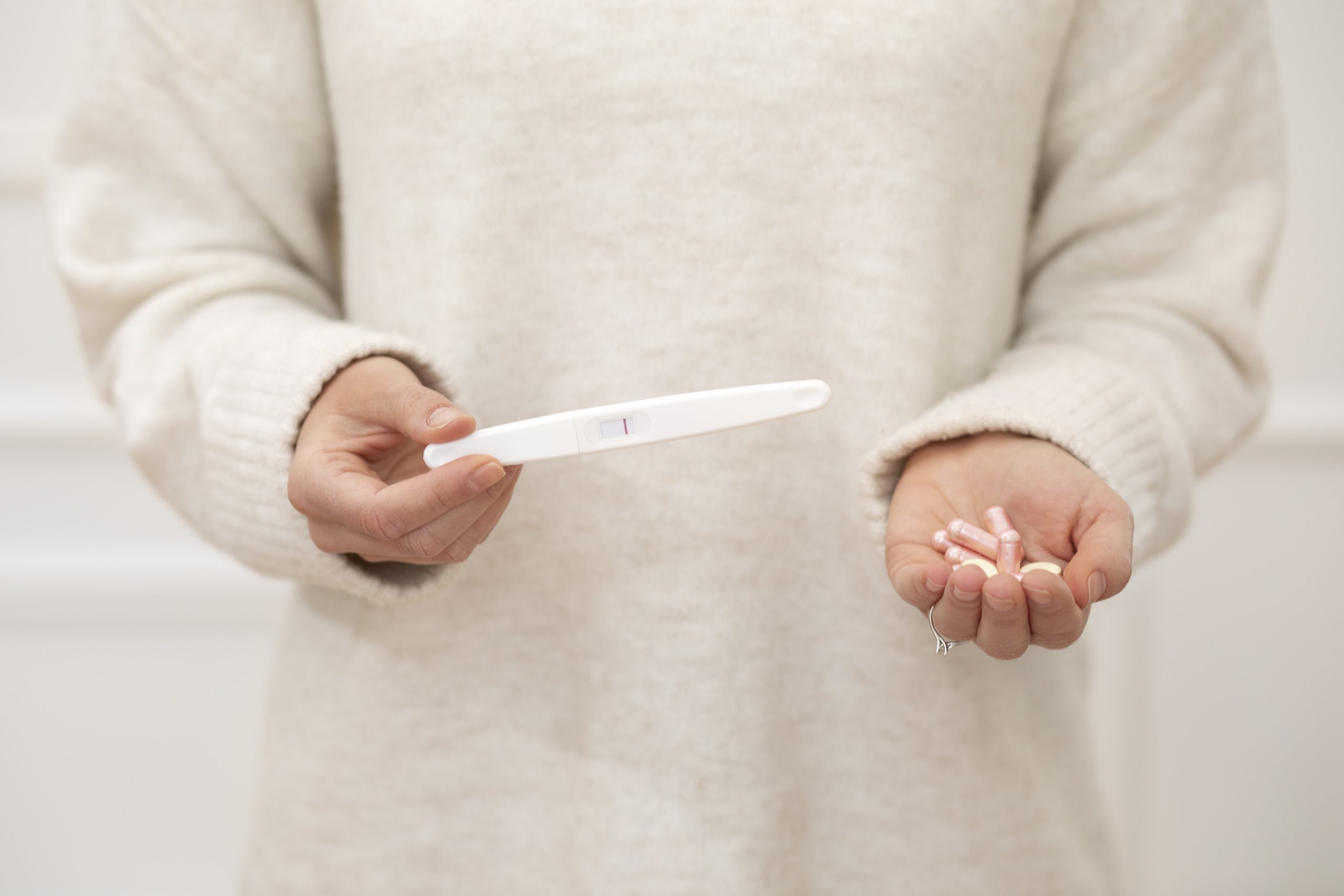


After giving birth, many women ask themselves: “Why don’t I feel desire like before?” Your body has changed. Your hormones have shifted. Your mind is filled with endless responsibilities. But the simple truth is that libido doesn’t disappear—it transforms.
It’s completely normal to experience a dip in sexual desire after childbirth, especially during the first few months. Your body is going through a total hormonal and emotional recalibration—balancing sleep, mood, and energy.
This shift doesn’t mean your desire is gone; it simply needs time, care, and reconnection to return—often in a deeper, more conscious way.
After delivery, the body begins a complex process of hormonal readjustment. Each hormone that governs mood, energy, and sexual function fluctuates at its own pace before gradually returning to its pre-pregnancy state.

Levels of estrogen and progesterone fall sharply right after birth, after remaining high throughout pregnancy. These hormones are essential for skin softness, vaginal moisture, emotional balance, and menstrual regulation.
When they suddenly plummet:

After childbirth, prolactin—the milk-producing hormone—rises sharply to support breastfeeding. This shift influences your body and emotions in opposite ways.
On one hand, prolactin helps:
But on the other:

Oxytocin, often called the “love hormone,” is released during childbirth, breastfeeding, touch, and intimacy. Its role is to increase warmth, trust, and emotional connection.
After birth, however, its direction shifts:

Many assume testosterone is only a male hormone, but it’s essential for women too. Produced in the ovaries and adrenal glands, it fuels vitality, confidence, and sexual drive. After childbirth—especially with breastfeeding or extreme fatigue—testosterone levels may drop by 30–50 percent, leading to:

Libido depends on more than hormones—it’s deeply tied to emotional wellbeing. After giving birth, many mothers find themselves trapped in a cycle of sleepless nights, endless duties, and mixed feelings of joy, guilt, and exhaustion.
When stress hormones stay elevated, the brain instinctively suppresses sexual hormones to protect the body, leading to a temporary drop in arousal.
Desire can only re-emerge when you allow yourself small moments of calm and presence.
Begin addressing these gradually: use mild lubricants or moisturizers, practice breathing and relaxation exercises, and consult a pelvic-floor specialist if needed.
When your body feels comfortable again, pleasure follows naturally.

After childbirth, the body changes—and sometimes your sense of self does too. Listen to Episode 9 of our Mech 3ayb Podcast, where we discuss physical and emotional recovery, fear of pain, and rebuilding trust in your body and intimacy.
Because pleasure isn’t the opposite of motherhood—it’s part of it.
If you feel you’re no longer the same after giving birth—in your body, your desire, or your self-image—our Postpartum Sexuality Program was designed for you.
A safe, comprehensive course including:
Consult a healthcare provider or sex therapist if:
Treatment is available and effective—often combining physical therapy, psychological support, and hormonal assessment.
Yes. It’s very common in the first months due to hormonal shifts, high prolactin, and emotional fatigue. It usually improves naturally with time.
No. Testosterone therapy is not recommended postpartum, especially while breastfeeding, as it may affect milk production and hormonal balance.
Desire can be restored naturally through rest, balanced nutrition, relaxation, pelvic-floor therapy, and emotional support.
Your libido after birth isn’t a test of your femininity—it’s a path back to yourself. Your body hasn’t failed you; it simply asks for time and tenderness to rediscover pleasure and wholeness.
At Metle Metlik, we’re here to guide you with evidence-based programs, compassionate community, and open conversations.
✨ Explore our programs | 🎧 Listen to our podcast | 📩 Subscribe to our newsletter
✨ Explore our programs | 🎧 Listen to our podcast | 📩 Subscribe to our newsletter



Enter your email address